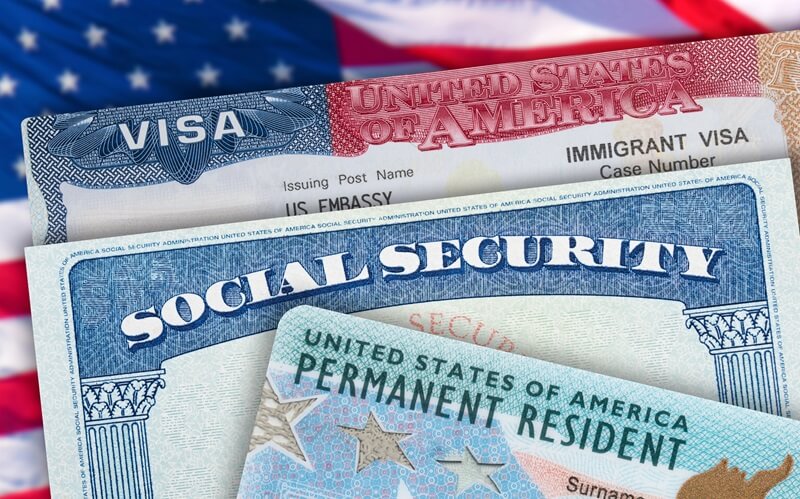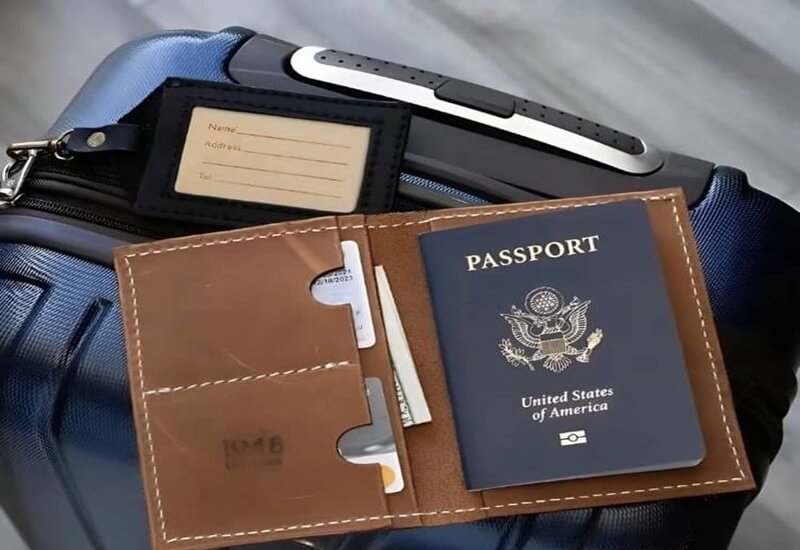What To Know About Obtaining A Green Card Through VAWA
For many immigrants experiencing abuse, the Violence Against Women Act (VAWA) offers a lifeline. This legislation empowers eligible individuals to self-petition for a Green Card without relying on their abuser for sponsorship or approval. It allows survivors to take control of their futures and secure lawful status in the United States.
For survivors of abuse, navigating the immigration system can be confusing. Here, you’ll learn about the steps to obtain a Green Card through VAWA, from eligibility requirements to filing the necessary forms. Discover how to prepare a strong case, address potential challenges, and move closer to achieving lawful permanent residency.

Understanding Eligibility For VAWA Protections
The Violence Against Women Act is a federal law designed to protect survivors of abuse and provide them with a pathway to independence. Confirming your eligibility is a vital first step before beginning the process. You may qualify to apply for a Green Card through this program if you fall into one of the following categories:
- Spouses: You can self-petition under VAWA if your U.S. citizen or lawful permanent resident spouse abused you. This also applies if you divorced within the past two years due to the abuse.
- Parents: You may qualify if your U.S. citizen child, aged 21 or older, abused you.
- Children: Unmarried children under 21 can apply if their U.S. citizen or lawful permanent resident parent abused them.
To meet the requirements, you must provide evidence that you have experienced battery or extreme cruelty. This includes emotional, financial, physical, or psychological abuse that caused harm. You must also demonstrate that you lived with the abuser at some point during your relationship.
U.S. Citizenship and Immigration Services (USCIS) also requires proof of good moral character, which includes a review of your background. Additionally, suppose you are applying as the spouse of an abusive U.S. citizen or lawful permanent resident. In that case, you must show that your marriage was genuine and not intended to bypass immigration laws.
Reviewing these qualifications is key. If you’re unsure about any requirements, you can consult an immigration lawyer to clarify them and guide you in the right direction. Once you confirm your eligibility, you can begin preparing your petition with strong supporting evidence.
Preparing Your Case With Substantial Evidence
Once you determine your eligibility, the next step is to gather the materials and documents necessary for your self-petition. This preparation is critical to ensuring that your petition is complete and compelling. Here are the initial steps to consider.
Gathering Documentation
Building a strong case starts with gathering clear and compelling evidence to support your petition. The documents you provide will help demonstrate your eligibility and the circumstances of your situation. Focus on collecting the following key items:
- Personal Statement: Write a detailed declaration describing the abuse you experienced, its impact on your life, and your relationship with the abuser, with supporting documents, such as a marriage contract.
- Proof of Abuser’s Status: Provide evidence that the abuser is a U.S. citizen or lawful permanent resident, such as a copy of their birth certificate, passport, or Green Card.
- Shared Residence: Collect documents showing that you lived with the abuser, like rental agreements, utility bills, or mail addressed to both of you.
- Abuse Evidence: This could include police reports, medical records, restraining orders, or photographs of injuries.
- Character References: Letters from family, friends, clergy, or community members can strengthen your case by attesting to your good moral character and describing the abuse.
Organizing these materials in advance will make the process smoother and help you stay on track during the application. Having everything prepared also reduces the likelihood of delays caused by missing information. A well-documented petition creates a clear and convincing case for USCIS to review.
Completing Form I-360
The cornerstone of your VAWA self-petition is Form I-360, Petition for Amerasian, Widow(er), or Special Immigrant. Completing this form accurately and honestly is critical to avoid delays or rejections. Include all required information and attach supporting documents as specified in the instructions on the form.
Taking Steps To Protect Your Privacy
To ensure your safety during this process, consider using a secure mailing address for all correspondence with USCIS. This might be a trusted friend’s address or a P.O. box. Additionally, be mindful of who you share details about your case with. Taking precautions ensures that your abuser remains unaware of your petition and reduces the risk of interference.
Once you’ve gathered all the necessary evidence and completed the required forms, the next step is filing your petition with USCIS. All your preparation comes together in this stage, allowing you to request protection under VAWA. Understanding how to submit your petition correctly can help ensure the process moves forward smoothly.
Filing Your Self-Petition Made Simple
After preparing your materials, you should send everything to the correct USCIS address listed in the instructions on the form. If you qualify, include the required filing fee or a fee waiver request, as missing these can delay processing. Once you submit your petition, USCIS sends a receipt notice confirming acceptance.
Immigration authorities review your submission to ensure it meets the basic requirements for VAWA eligibility. They will issue a prima facie determination when your petition contains enough evidence. This temporary approval confirms your case meets the initial criteria and lets you access certain benefits like public assistance during further review.
After USCIS approves your petition, you apply for a Green Card. This step transitions you from temporary protections under VAWA to lawful permanent residency. Completing the adjustment of the status process brings you closer to achieving your goals.
Applying For A Green Card After Approval
If USCIS approves your VAWA petition, the next step is applying for a Green Card. To do this, file Form I-485, Application to Register Permanent Residence or Adjust Status, once a Visa is available in your category. This form requires detailed information about your identity, background, and immigration history.
Submit Form I-485 with proof of your I-360 approval, a passport or birth certificate, and any other documents USCIS requires. To complete your application, these may include medical exam results, fingerprints, or other supporting evidence. Providing thorough and accurate documentation helps ensure a smoother process.
Sometimes, you can file VAWA self-petition and Form I-485 concurrently. An immigration lawyer can evaluate your situation and advise whether this option benefits your case. Additionally, while waiting for your Green Card, you can apply for a work permit to support yourself and a travel permit if you need to leave the U.S. temporarily.
A lawyer can guide you through this process by ensuring your forms are accurate, complete, and submitted on time. They can also help address challenges, improving your chances for a smooth approval. With their support, you can navigate the requirements confidently and focus on building a stable future.
Pursuing Safety With Lincoln-Goldfinch Law By Your Side

The path to safety and stability through a VAWA self-petition can be uncertain, but you don’t have to face it alone. Lincoln-Goldfinch Law – Abogados de Inmigración guides you through each step, helping you gather the documentation and evidence to strengthen your case. Our team reviews your Form I-360 and addresses questions about your eligibility.
When you apply for your Green Card, we assist you in completing Form I-485 and compiling the required materials for your adjustment of status. We help you ensure your forms are accurate, submit them on time, and resolve any issues. Our team works with you to simplify the process so you can focus on your future.
You deserve the chance to live free from fear and abuse. Our compassionate legal team helps you take control of your immigration journey. We handle the legal work while you build a safe and secure life for yourself and your loved ones.
Obtaining a Green Card through VAWA gives survivors of abuse a chance to secure legal status and rebuild their lives. Success starts with meeting eligibility requirements, gathering strong evidence, and carefully completing the forms. Filing Form I-485 allows you to take the final step toward lawful permanent residency.
Each stage of the process demands careful preparation and attention to detail. Therefore, legal support can help you meet every requirement and address challenges effectively. Lincoln-Goldfinch Law offers dedicated assistance to help you achieve safety and stability through the VAWA process.
Contact A U.S. Immigration Attorney Today!
Categories
How To Find Us
What Our Clients Say
“This Lawfirm is great, very professional and helpful. I love that they are always in communication and always available for when you have questions . 100% recommended by me and my family. Thank you Lincoln-Goldfinch Law – Abogados de Inmigración”





